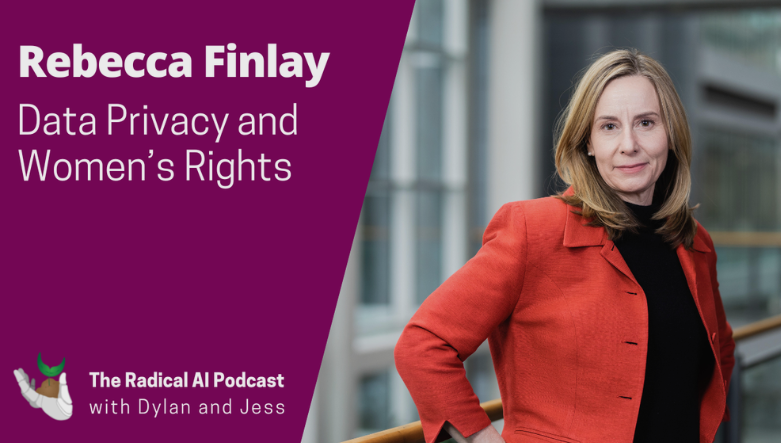
ΑΙhub.org
Radical AI podcast: featuring Rebecca Finlay

Hosted by Dylan Doyle-Burke and Jessie J Smith, Radical AI is a podcast featuring the voices of the future in the field of artificial intelligence ethics. In this episode Jess and Dylan chat to Rebecca Finlay about data privacy and women’s rights.
Data privacy and women’s rights
What is the reality of data privacy after the overruling of Roe v. Wade?
In this episode, we interview Rebecca Finlay about protecting user data privacy and human rights, following the US Supreme Court ruling of Dobbs v. Jackson Women’s Health Organization.
Rebecca Finlay is the CEO of the non-profit Partnership on AI, overseeing the organization’s mission and strategy. In this role, Rebecca ensures that the Partnership on AI and their global community of partners work together so that developments in AI advance positive outcomes for people and society.
You can find the resources related to this episode here.
Follow Rebecca on Twitter @RFinlayPAI.
Follow Partnership on AI on Twitter @PartnershipAI.
If you enjoyed this episode please make sure to subscribe, submit a rating and review, and connect with us on twitter at @radicalaipod.
Listen to the episode below:
About Radical AI:
Hosted by Dylan Doyle-Burke, a PhD student at the University of Denver, and Jessie J Smith, a PhD student at the University of Colorado Boulder, Radical AI is a podcast featuring the voices of the future in the field of Artificial Intelligence Ethics.
Radical AI lifts up people, ideas, and stories that represent the cutting edge in AI, philosophy, and machine learning. In a world where platforms far too often feature the status quo and the usual suspects, Radical AI is a breath of fresh air whose mission is “To create an engaging, professional, educational and accessible platform centering marginalized or otherwise radical voices in industry and the academy for dialogue, collaboration, and debate to co-create the field of Artificial Intelligence Ethics.”
Through interviews with rising stars and experts in the field we boldly engage with the topics that are transforming our world like bias, discrimination, identity, accessibility, privacy, and issues of morality.
To find more information regarding the project, including podcast episode transcripts and show notes, please visit Radical AI.









